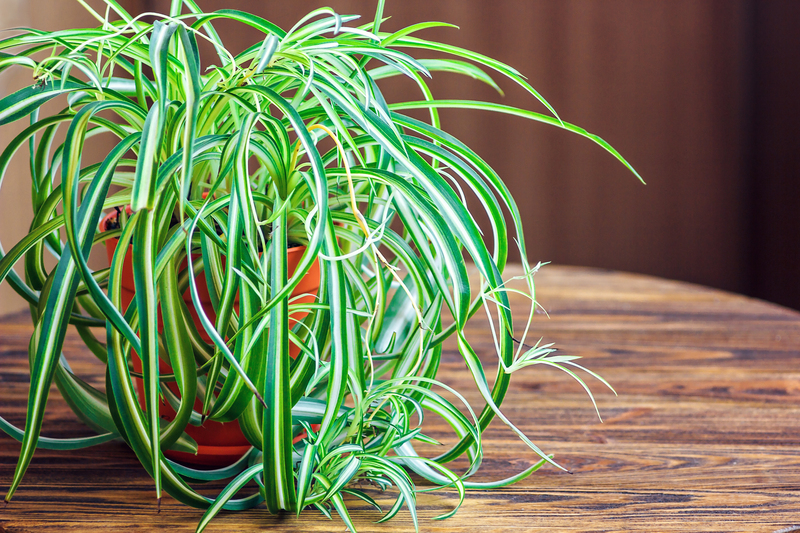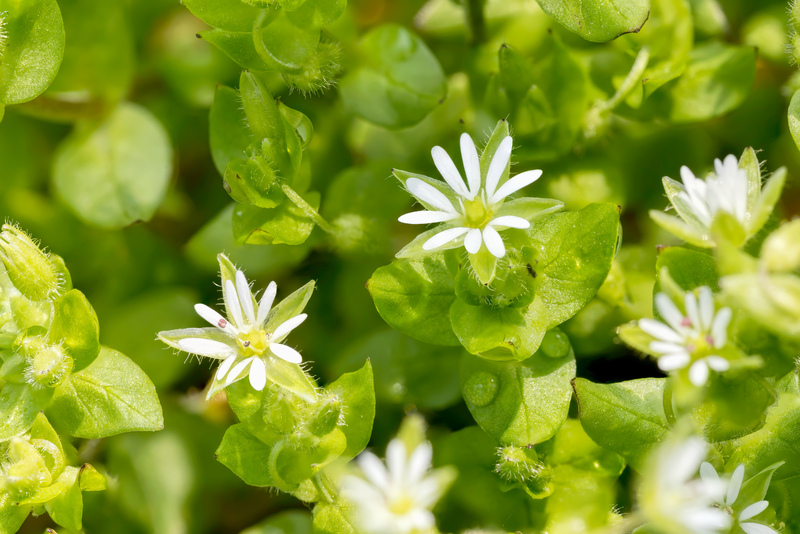Prepare Your Plants: Essential Winterizing Garden Tips
Posted on 05/09/2025
Prepare Your Plants: Essential Winterizing Garden Tips
As the days become shorter and temperatures start to dip, it's time to prepare your garden for winter. Knowing how to winterize your plants not only helps them survive the cold but ensures a lush, thriving garden come spring. In this comprehensive guide, we'll walk you through essential winterizing garden tips, helping both novice and seasoned gardeners protect their green spaces from the harsh winter months.
Why Is Winterizing Your Garden Important?
Before you start covering your delicate plants and mulching your garden beds, it's essential to understand the benefits of winterizing your garden and plants:
- Protects roots and stems from freezing temperatures
- Reduces the risk of pest infestations and diseases in spring
- Helps perennials and shrubs establish healthy root systems
- Prepares soil for better nutrient absorption
- Maximizes chances for a vibrant regrowth after winter

When Should You Start Preparing Your Garden for Winter?
Timing is critical in the winterization process. Ideally, you should begin preparing your plants for winter in late autumn, before the first hard frost arrives. Watch local weather reports and take action when night temperatures consistently fall below 50?F (10?C), which often signals the changing season.
Essential Winterizing Garden Tips: A Step-by-Step Guide
1. Clean Up Your Garden Beds
Clearing out spent annuals, fallen leaves, and plant debris is the first step in winter garden preparation. This proactive clean-up:
- Prevents the overwintering of pests and plant diseases.
- Reduces hiding places for unwanted insects.
- Keeps your garden tidy and ready for spring planting.
*Tip*: Compost healthy plant debris, but discard any diseased material to avoid contaminating next season's crop.
2. Trim and Prune Perennials and Shrubs
Fall pruning helps plants conserve energy. Remove dead or diseased branches and spent flowers, but avoid heavy pruning--leaving some stems provides winter protection. For ornamental grasses and perennials, cut back to about 4-6 inches above the ground.
- Tender perennials: Trim lightly and cover the base with mulch.
- Woody shrubs: Prune out dead wood, but leave structural pruning for late winter or early spring.
3. Mulch Generously
Using mulch is one of the most vital steps in winterizing your plants. Mulching insulates the soil, keeps roots at a consistent temperature, and protects them from thawing and freezing cycles.
- Apply a 2-4 inch layer of organic mulch (straw, shredded leaves, or wood chips) around the base of plants.
- Keep mulch a few inches away from stems to prevent rot.
- Use more mulch for newly planted perennials and bulbs, which have shallower roots.
4. Water Plants Deeply Before the Ground Freezes
Heading into winter with dry soil can damage root systems. Make sure to water your garden deeply one last time, especially during dry autumns.
- Evergreens and shrubs: These need moisture to withstand dry winter winds.
- Container plants: Check soil moisture regularly until the first freeze.
*Reminder*: Reduce watering as plants go dormant.
5. Relocate or Shelter Sensitive Plants
Some plants simply aren't built for winter in colder zones. For tender perennials, tropical plants, and container gardens:
- Bring pots indoors to a room with bright light and cooler temperatures.
- Use protective covers such as garden fleece, burlap, or frost cloth for outdoor plants.
- Cluster containers together to retain warmth.
6. Protect Young Trees and Shrubs
Newly planted trees and shrubs are vulnerable to frost cracks and animal damage. To winterize:
- Wrap trunks with tree guards or burlap to prevent frost splits and rodent chewing.
- Add extra mulch around the base, keeping it away from direct contact with the bark.
- Use stakes to keep protection in place during windy weather.
7. Divide and Plant Bulbs
Late fall is the perfect time to divide overcrowded perennials and plant spring-flowering bulbs such as tulips, daffodils, and hyacinths.
- Dig up and divide clumps of perennials, then replant to stimulate healthy growth.
- Plant bulbs at the recommended depth for each variety, typically 2-3 times their length.
8. Care for Your Lawn
Lawns benefit from some winter attention. For a lush spring revival, consider:
- Aerating: Relieves soil compaction and improves root health.
- Mowing: Trim grass slightly shorter before the first frost.
- Fertilizing: Use a slow-release winter fertilizer to sustain grassroots during dormancy.
9. Prep and Store Garden Tools and Equipment
Tool maintenance is easily overlooked in the race to prepare plants for winter. Clean, sharpen, and oil garden tools before storage to prevent rust and extend their lifespan. Drain hoses and irrigation systems to avoid frost damage.
Winterizing Specific Garden Types
Caring for Vegetable Gardens in Winter
Winterizing a vegetable patch requires extra attention, especially if you have root crops or winter-hardy greens. Here's how to protect your vegetable garden for winter:
- Harvest remaining vegetables before the first deep freeze.
- Remove and compost healthy plant residue, discard diseased foliage.
- Plant cover crops like clover or winter rye to enrich and stabilize soil for spring.
- Heavily mulch root vegetables such as carrots and beets for in-ground storage.
Winterizing Container Gardens and Raised Beds
Container plants are particularly prone to root freeze due to exposure from all sides. Move them against a sheltered wall, wrap pots in insulating material, or even bury them in the ground to preserve warmth. In raised beds, apply extra mulch and consider using temporary cold frames or hoop houses for added protection.
Looking After Perennials and Shrubs
After cutting back and mulching, some perennials still benefit from an added layer of protection. For delicate varieties (like lavender, rosemary, or echinacea), use garden cloches or overturned baskets for insulation. Shield sensitive shrubs with burlap screens on the windward side if your area experiences harsh winds.
Shielding Roses from Winter Damage
Roses are susceptible to winter injury, but with these garden winterizing tips, you can preserve their beauty:
- After the first frost, mound 8-12 inches of soil or compost around the base.
- Cover with straw or leaf mulch for further insulation.
- Wrap the canes in burlap or use rose cones for hybrid teas and climbing varieties.
Preventing Pest and Disease Problems Over Winter
Winter doesn't stop pests and diseases--many thrive or overwinter in garden debris. Here's how to reduce their impact:
- Remove all old plant material and weeds, where pests often hide their eggs.
- Sanitize garden supports, stakes, and cages with a diluted bleach solution.
- Avoid composting diseased foliage to prevent reinfection next season.
- Inspect mulch and compost piles periodically for pests such as slugs or rodents.
Common Winterizing Garden Mistakes to Avoid
Even the most seasoned gardeners can overlook crucial steps. Keep these mistakes in mind and you'll be well-prepared:
- Applying mulch too early - Wait until after the ground freezes to discourage rodents and delay root growth.
- Pruning all branches back too far - Harsh winter winds can cause more damage to heavily pruned plants.
- Using plastic covers directly on plants - This traps moisture and causes rot. Opt for breathable fabrics like burlap or garden fleece.
- Ignoring tool maintenance - Dirty, dull tools can introduce disease come spring.
- Forgetting to water evergreens - They need hydration even as growth slows.
Regional Considerations for Winterizing Gardens
Cold Climates (USDA Zones 2-6)
- Focus on thick layers of mulch and covering sensitive plants with cold frames or cloches.
- Bring in containers and exotic species well before the first frost.
- Consider anti-desiccant sprays for evergreens exposed to winter wind.
Temperate and Milder Climates (USDA Zones 7-10)
- Use lighter mulch layers to protect against sudden cold snaps.
- Take measures against heavy winter rains causing root rot.
- Some cool-weather crops, like kale and spinach, can be over-wintered under simple row covers.

Winterizing Garden Tips for Maximum Spring Success
Winter may seem like a dormant season, but your garden's health depends on the steps you take now. Here's a quick recap of the best ways to prepare your plants for winter:
- Clear away garden debris to limit pest and disease carryover.
- Prune lightly--don't cut back all growth unnecessarily.
- Feed your soil with compost and protect roots with mulch.
- Shelter delicate plants and containers from the worst of the cold.
- Remember tool and equipment care for a smooth start next spring.
- Identify plants needing the most protection--and give them special care.
Bonus: Eco-Friendly Winterizing Solutions
- Opt for sustainable mulches like shredded leaves and pine needles.
- Reuse burlap bags, old blankets, or cardboard as plant covers.
- Plan to rotate crops and cultivate biodiversity for long-term resilience.
Conclusion: Get Ready for a Brilliant Spring
Successful winterizing of your garden isn't just damage control--it's a way of nurturing your plants through the toughest months and setting the stage for spectacular blooms and bountiful harvests. By following these comprehensive garden winterizing tips, your soil, shrubs, perennials, and vegetables will all weather the cold and reward you with a thriving, healthy garden when the snow melts.
*Don't wait until it's too late--start preparing your garden for winter today and you'll enjoy the benefits for seasons to come!*
```Latest Posts
Vertical Gardening: Merging Aesthetics with Ecology
Design Outdoor Spaces that Breathe Calm with Zen Garden Ideas
Transform Your Yard with These 3 Handy Weed Control Suggestions

